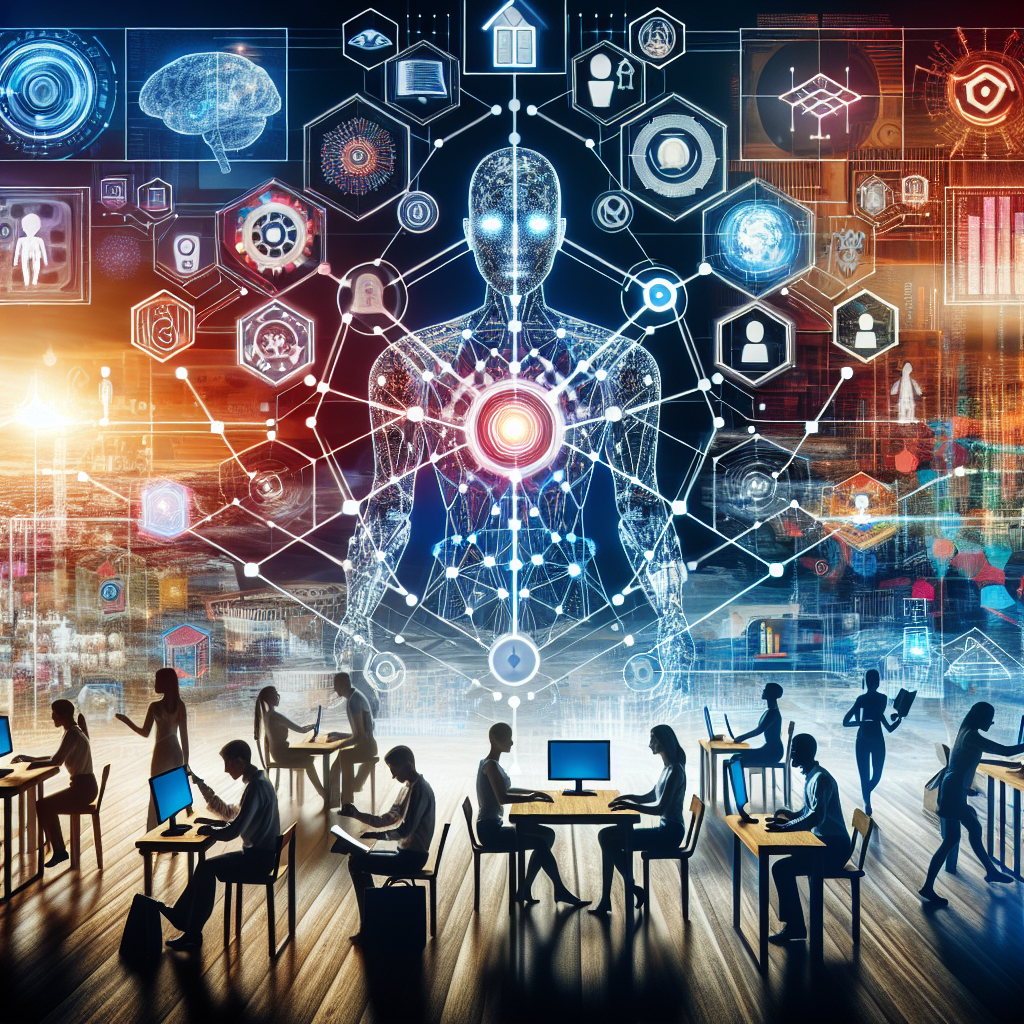Artificial General Intelligence (AGI) is a term that refers to a form of artificial intelligence that possesses the ability to understand, learn, and apply knowledge in a manner similar to human intelligence. AGI has the potential to revolutionize the way we live, work, and interact with each other. As this technology continues to advance, it is crucial to consider the impact it will have on society and the human experience.
The development of AGI has the potential to bring about significant changes in various aspects of society. From healthcare to transportation, education to entertainment, the possibilities are endless. With the ability to process vast amounts of data and make decisions in real-time, AGI has the potential to improve efficiency, productivity, and innovation across industries.
One of the key areas where AGI is expected to have a major impact is in healthcare. With the ability to analyze medical data and identify patterns that humans may overlook, AGI has the potential to revolutionize the way diseases are diagnosed and treated. This could lead to earlier detection of diseases, more personalized treatment plans, and ultimately, better health outcomes for patients.
In the field of transportation, AGI has the potential to revolutionize the way we get from point A to point B. Self-driving cars, powered by AGI, have the potential to reduce traffic congestion, improve road safety, and provide greater mobility for those who are unable to drive. This technology could also have a significant impact on the environment, as self-driving cars could lead to a reduction in emissions and a more sustainable transportation system.
In education, AGI has the potential to revolutionize the way students learn and teachers teach. With the ability to personalize learning experiences based on individual student needs, AGI could help students reach their full potential and achieve academic success. This technology could also help educators identify areas where students may be struggling and provide targeted interventions to help them succeed.
In the entertainment industry, AGI has the potential to create new and immersive experiences for audiences. From virtual reality to augmented reality, AGI-powered technologies could push the boundaries of creativity and storytelling, providing audiences with new ways to engage with content.
While the potential benefits of AGI are vast, there are also concerns about the impact this technology could have on society. One of the key concerns is the potential for job displacement as automation and AI-powered technologies continue to advance. As machines become increasingly capable of performing tasks that were once done by humans, there is a fear that many jobs could be at risk.
Another concern is the potential for AGI to be used in ways that could harm society. From surveillance to warfare, there are ethical considerations that must be taken into account as this technology continues to advance. It is crucial that policymakers, researchers, and industry leaders work together to ensure that AGI is developed and used in a responsible and ethical manner.
In order to address some of the key questions and concerns surrounding AGI, we have compiled a list of frequently asked questions:
FAQs:
1. What is the difference between AGI and narrow AI?
AGI refers to a form of artificial intelligence that possesses the ability to understand, learn, and apply knowledge in a manner similar to human intelligence. Narrow AI, on the other hand, refers to artificial intelligence that is designed for a specific task or set of tasks. While narrow AI is limited in its capabilities, AGI has the potential to perform a wide range of tasks and adapt to new situations.
2. How close are we to achieving AGI?
The development of AGI is still in its early stages, and there is no consensus on when or if AGI will be achieved. Some researchers believe that AGI could be achieved within the next few decades, while others believe that it may never be possible. It is important to continue researching and developing this technology in order to better understand its potential and limitations.
3. What are some of the potential benefits of AGI?
AGI has the potential to revolutionize various industries, including healthcare, transportation, education, and entertainment. With the ability to process vast amounts of data and make decisions in real-time, AGI has the potential to improve efficiency, productivity, and innovation across industries. This technology could also help address some of the most pressing challenges facing society, such as climate change, poverty, and disease.
4. What are some of the potential risks of AGI?
There are concerns about the potential impact of AGI on society, including job displacement, ethical considerations, and the potential for misuse. As machines become increasingly capable of performing tasks that were once done by humans, there is a fear that many jobs could be at risk. There are also concerns about the potential for AGI to be used in ways that could harm society, such as surveillance, warfare, and discrimination.
5. How can we ensure that AGI is developed and used in a responsible and ethical manner?
It is crucial that policymakers, researchers, and industry leaders work together to ensure that AGI is developed and used in a responsible and ethical manner. This includes developing guidelines and regulations to govern the use of AGI, conducting research to better understand the potential risks and benefits of this technology, and engaging with stakeholders to address concerns and ensure that AGI is used for the greater good.
In conclusion, AGI has the potential to revolutionize the way we live, work, and interact with each other. While the benefits of this technology are vast, there are also concerns about the impact it could have on society. It is crucial that policymakers, researchers, and industry leaders work together to ensure that AGI is developed and used in a responsible and ethical manner. By addressing these concerns and working together, we can harness the power of AGI to create a better future for all.

